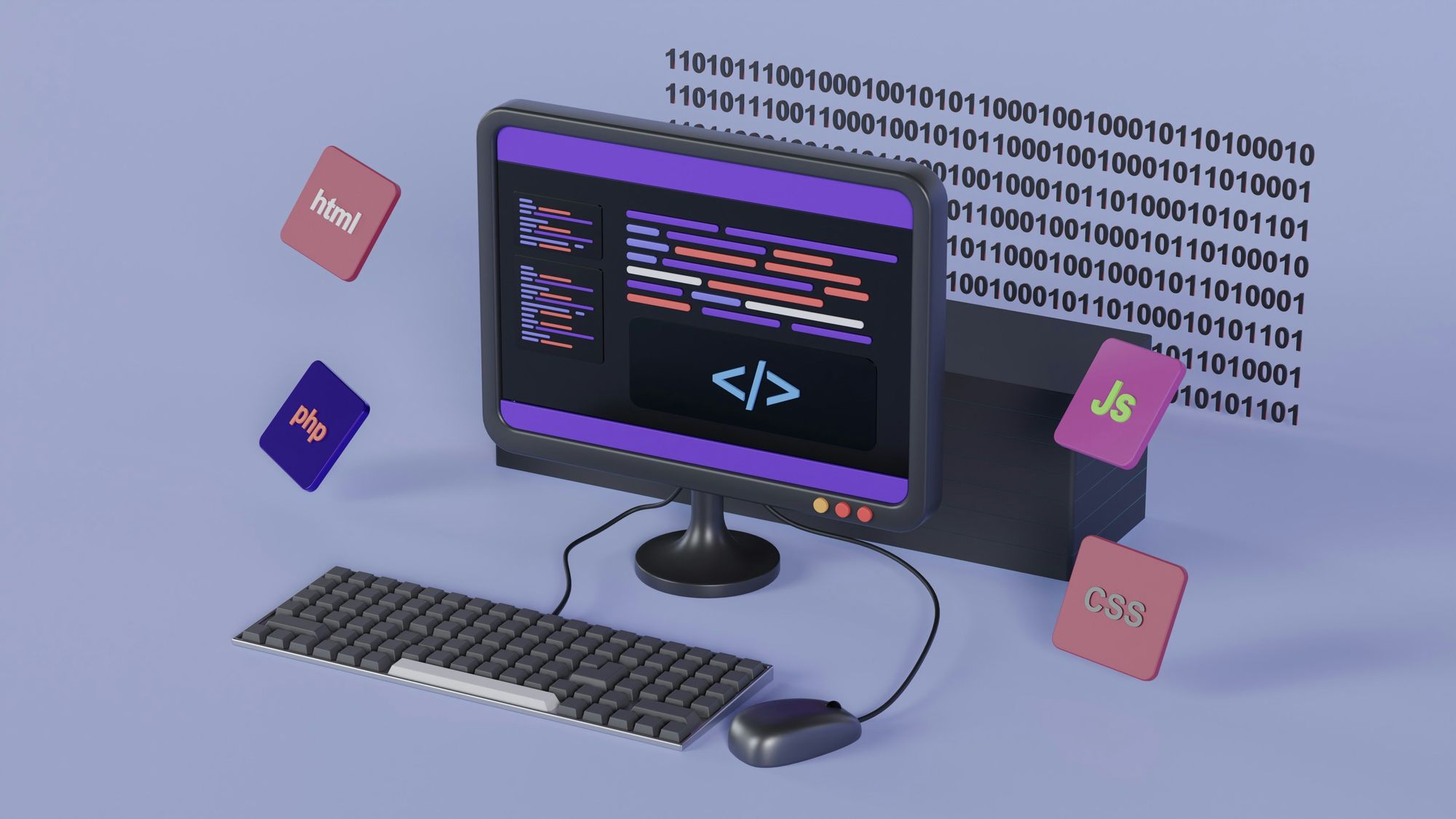14 Best Open Source Text To Speech AI Solutions
Discover the top 15 open source text to speech AI solutions that are revolutionizing with technology. Find the perfect tool for your project.

Unlock the power of Open Source Text To Speech AI-driven technologies and revolutionize the way you engage with your audience. Text To Speech Technology is a game-changer in accessibility and customization, breaking down language barriers and delivering your message clearly and effectively. Dive into this innovative technology and discover how it can optimize your communication strategy, opening up new possibilities for connecting with your audience. Whether you are a business owner, content creator, or simply looking to explore cutting-edge technology, this blog is your gateway to a new era of communication.
Table of Contents
- What Is Text To Speech AI?
- Applications Of Text To Speech AI
- Understanding Open Source Text To Speech AI Solutions And Its Benefits
- 14 Best Open Source Text To Speech AI Providers
- Limitations Associated With Open Source TTS AI
- Getting Started With Open Source TTS AI
- Try Unreal Speech for Free Today — Affordably and Scalably Convert Text into Natural-Sounding Speech with Our Text-to-Speech API
What Is Text To Speech AI?

Text-to-speech (TTS) AI is an exciting technology that leverages machine learning algorithms and natural language processing techniques to convert written text into spoken audio. By employing deep learning techniques, particularly neural networks, this technology can model the intricate relationships between linguistic elements and their corresponding acoustic features, resulting in the creation of lifelike AI voices that closely resemble natural human speech. It is essential to note that TTS is crucial in making digital information more accessible, interactive, and easily digestible for people all around the world.
The Key Functions of a TTS Pipeline
In the vast landscape of Text-to-Speech (TTS) technology, the process of converting written text into spoken audio involves several key models and modules in an end-to-end TTS pipeline.
- The initial stages of text normalization and preprocessing are crucial as they convert numbers and abbreviations into words.
- Following text normalization, text encoding comes into play as it is a crucial step in converting text into an encoded vector used as an input to a spectrogram generator.
- The spectrogram generator then generates a spectrogram from the encoded text vector.
- The vocoder model takes spectrograms as input to generate a synthetic voice that can be heard.
- TTS is the last stage in applications such as virtual assistants, digital humans, and service robots.
Advancements in TTS Technology
In recent years, substantial advancements have been made in TTS technology, leading to the development of more natural-sounding synthetic voices and the ability to generate expressive speech. The customization of AI models and pipelines at inference time allows for the generation of expressive synthetic voices. Deploying TTS systems in various environments, including cloud, data centers, at the edge, or on embedded devices, has become more feasible, thanks to these advancements.
Applications Of Text To Speech AI

Accessibility
TTS technology significantly improves accessibility for individuals using assistive devices, expanding the reach of digital content to a broader audience. This technology converts text into spoken words, making information more accessible and inclusive.
Virtual Assistants
AI-powered virtual assistants leverage TTS technology to interact with users using AI-generated voices. These virtual assistants handle tasks such as scheduling reminders, answering inquiries, and providing information, enhancing user experience and efficiency.
Education
In educational settings, TTS AI supports students with learning disabilities, dyslexia, or cognitive impairments. By converting text into speech, TTS technology assists students in comprehension, enabling a better learning environment and academic experience.
Business and Marketing
The TTS technology is invaluable in the creation of content, business presentations, marketing materials, and customer service automation. By enhancing communication and engagement, this technology drives better user experience and overall business success.
Multilingual Communication
TTS AI breaks down language barriers, enabling seamless multilingual interactions. This feature is essential for global businesses and international collaborations, fostering effective communication across different languages and cultures.
Language Learning
For language learners, TTS technology serves as a valuable tool in pronunciation practice, language acquisition, and comprehension improvement. By providing accurate pronunciation examples, TTS enhances language learning experiences.
Navigation and Directions
TTS technology offers real-time audio guidance in navigation systems, improving safety and convenience during travels. This feature makes navigation systems more user-friendly and enhances the overall travel experience.
Entertainment and Gaming
In the entertainment industry and gaming sector, TTS enriches gaming experiences by giving characters unique voices. This feature enhances immersion and engagement, offering a more interactive and enjoyable gaming experience.
Understanding Open Source Text To Speech AI Solutions And Its Benefits

Open source TTS technology is a revolutionary advancement in the field of voice synthesis, offering numerous benefits to users and developers. One primary advantage is that open-source TTS AI software is easily customizable, allowing for fine-tuning of aspects like speech speed, pitch, and pronunciation to create a more personalized experience. This technology is versatile enough to cater to the specific needs of various industries, making it a cost-effective and efficient solution for a wide range of applications.
A crucial benefit of open-source TTS AI software is its extensive language support, enabling users to generate speech in diverse languages without limitations. The ease of deployment and integration via HTTP API enhances the accessibility of these open-source tools, making them user-friendly and straightforward to implement.
14 Best Open Source Text To Speech AI Providers

1. Unreal Speech
Unreal Speech offers a low cost, highly scalable text-to-speech API with natural-sounding AI voices which is the cheapest and most high-quality solution in the market. We cut your text-to-speech costs by up to 90%. Get human-like AI voices with our super-fast / low latency API, with the option for per-word timestamps. With our simple easy-to-use API, you can give your LLM a voice with ease and offer this functionality at scale.
If you are looking for cheap, scalable, realistic TTS to incorporate into your products, try our text-to-speech API for free today. Convert text into natural-sounding speech at an affordable and scalable price.
2. MaryTTS (Multimodal Interaction Architecture)
MaryTTS is a Java-based open source text-to-speech system, featuring high-quality voices and an extensive toolkit for generating new voices. It provides support for multiple languages and a customizable HTML interface.
3. eSpeak
An incredibly compact open-source speech synthesizer compatible with Windows, Linux, and MacOS. eSpeak supports several languages, including English and Russian and it can be employed through the command line or a simple API.
4. Flite (Festival Lite)
Developed by Carnegie Mellon University (CMU), Flite is a lightweight and versatile speech synthesis engine. It’s designed to work on embedded systems and large servers alike.
5. Coqui TTS
A powerful TTS AI tool developed by Coqui, it leverages advanced transformer models for high-quality speech synthesis. Coqui TTS’s user-friendly Python interface, extensive documentation, and community support make it a preferred choice for developers.
6. Mycroft’s Mimic
Mycroft offers Mimic, an open-source text-to-speech engine, as part of its open-source voice assistant. Mimic allows developers to create custom voices and can be used as a standalone TTS tool.
7. Mozilla’s TTS
Built with Python, Mozilla’s TTS AI offers a unique combination of traditional signal processing techniques with advanced machine learning models, providing high-quality speech output. It supports GPU acceleration, making it a suitable choice for real-time applications.
8. Jovo
Jovo is an open-source framework designed for constructing voice and chat applications across various platforms. It aids in the development of applications for voice and chat platforms, with a focus on durability and speed in the development process.
9. Uberduck
Uberduck is a creative, open-source voice AI platform. Boasting over 5,000 voices, you can use the tools and libraries at Uberduck to create amazing and expressive voice recordings, AI chatbots, and other tools.
10. Tacotron 2 (by NVIDIA)
Although not an engine per se, Tacotron 2 is a neural network model architecture for generating natural speech. Open-source implementations of Tacotron 2 are available, and it has inspired many developments in speech synthesis technology.
11. MBROLA
MBROLA, an acronym for Multi-Band Resynthesis OverLap Add, is another prominent open-source TTS engine renowned for its wide language support. It caters to a multitude of spoken languages, making it an invaluable tool for projects with diverse linguistic requirements.
12. Kaldi
Another useful open-source TTS AI converting models is Kaldi. It has an effective toolkit, making speech recognition effective. The code is written in C++, making it suitable for every programmer as this is the basic language.
13. ESPnet-TTS
Part of the ESPnet project, this TTS AI is designed for end-to-end speech processing, including both speech recognition and synthesis. It uses modern deep-learning techniques to generate speech.
14. Google Cloud TTS API
Leveraging DeepMind's exceptional speech synthesis capabilities to deliver high-quality speech in over 380 voices available in 50+ languages and variants.
Limitations Associated With Open Source TTS AI

Quality and Accuracy Limitations
Open-source Text to Speech AI models have made significant strides in quality improvement, but they may fall short compared to commercial solutions when it comes to accuracy. Particularly for less common languages or dialects, errors, inconsistencies, or unnatural-sounding speech can still prevail in open-source TTS models.
Resource Intensiveness
Developers diving into open-source TTS AI must be prepared for the resource-intensive nature of training and fine-tuning these models. It demands substantial computational power, time, and expertise. Access to high-performance computing resources and extensive datasets is necessary to achieve satisfactory results, which could be a hurdle for users with limited resources or technical competencies.
Lack of Support and Documentation
Certain open-source TTS AI projects might lack thorough documentation, tutorials, or user support resources. This scarcity can be a stumbling block for developers, especially those new to the field, trying to navigate the complexities of TTS model training, implementation, and troubleshooting. Inactive development or limited community support can compound these issues.
Customization Complexity
Though open-source TTS AI allows for greater customization than proprietary solutions, the process of customizing and fine-tuning these models can be intricate and time-consuming. Developers need specialized knowledge of machine learning, natural language processing, and signal processing to optimize models for specific languages, voices, or use cases. The customization journey often entails iterative experimentation and tuning to yield desired outcomes.
Legal and Licensing Considerations
Developers leveraging open-source TTS AI must meticulously review and comply with the licensing terms of the software and associated datasets. Some open-source licenses impose constraints on usage, modification, and distribution. Violating these licensing terms could lead to legal repercussions and intellectual property disputes.
Dependency Management
Open-source TTS AI projects typically rely on other software libraries, frameworks, or tools. Managing dependencies and ensuring compatibility with varying software versions and environments can be a challenge, especially in complex development ecosystems. Changes or updates to dependencies might introduce compatibility issues or break existing functionality, necessitating careful management and testing.
Getting Started With Open Source TTS AI

To get started with open source TTS AI, you can explore solutions on platforms like GitHub or Hugging Face to get their APIs and use comprehensive documentation, tutorials, and example code provided by these projects to guide you through the setup and usage process. Most popular frameworks offer libraries and pre-trained models that can be fine-tuned to generate high-quality, realistic voices.
Navigating Costs and Premium Features
It's important to note that while the core technology is free, additional tools, workflows, or services may have associated costs. Some projects offer premium features or enterprise plans that provide advanced functionalities, technical support, or custom integrations. It's essential to review the pricing and licensing terms of each specific TTS AI solution before integration.
Considerations for Choosing Open Source TTS AI Solutions
When choosing an open source TTS AI solution, consider factors such as voice quality, customization options, ease of deployment, and HTTP API. It's also recommended to review user feedback and community support to ensure a smooth and successful implementation.
Try Unreal Speech for Free Today — Affordably and Scalably Convert Text into Natural-Sounding Speech with Our Text-to-Speech API
Unreal Speech is a game-changing solution in the realm of Open Source Text To Speech AI. By incorporating their user-friendly API, you can now effortlessly add a natural-sounding voice to your LLM (Large Language Models) with barely any hassle. Taking advantage of the cutting-edge AI voices on offer, Unreal Speech significantly reduces the costs associated with text-to-speech by as much as 90%. The cherry on top is the option for per-word timestamps, which provides even more control over the output.
The Unreal Speech API is not just another run-of-the-mill solution; it boasts a swift, low-latency feature that is ideal for scaling purposes. This speedy response is particularly beneficial for time-sensitive tasks that require real-time synthesis. The icing on the cake is the cost-effectiveness and scalability that Unreal Speech offers. This revolutionary approach to integrating text-to-speech into your products opens up a world of possibilities for businesses seeking affordable, high-quality AI voices.
Unreal Speech: The Most Affordable Text-to-Speech Solution on the Market
When it comes to affordability, Unreal Speech stands head and shoulders above the rest. By incorporating their API, you not only gain access to top-quality AI voices but also enjoy a considerable reduction in costs. With Unreal Speech, the cost of text-to-speech is slashed dramatically, making it the most budget-friendly option available. This blend of quality and affordability is a rare find in the world of text-to-speech solutions, making Unreal Speech a standout selection.
Unreal Speech: A High-Quality, Scalable Text-to-Speech API
One of the standout features of Unreal Speech is its scalability. This text-to-speech API is designed to handle large-scale tasks with ease, making it perfect for businesses looking to streamline their operations. Unlike many other solutions on the market, Unreal Speech delivers a high-quality output without compromising on efficiency. The ability to cater to growing demands while maintaining excellent quality is a testament to the effectiveness of Unreal Speech's design.
Unreal Speech: The Perfect Solution for Adding a Human Touch to AI
Artificial Intelligence is a powerful tool, but it often lacks that human touch that makes interactions more engaging. Unreal Speech aims to change that by providing a natural-sounding voice that brings AI to life. By incorporating their super-fast, low-latency API, you can now give your LLM a voice that resonates with users. This human-like quality not only enhances user experiences but also adds a layer of authenticity to AI interactions.
If you're looking to infuse your products with a touch of humanity, Unreal Speech is the ideal solution for you.